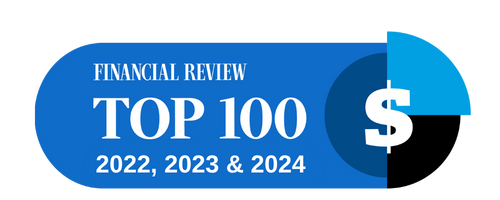One of the most frequently asked questions our financial advisers hear is: “Should I repay my HELP debt (Higher Education Loan Program) early?”
This question has gained more relevance recently, particularly due to the significant 7.10% increase in HELP debt indexation during the 2022/2023 financial year. Fortunately, the Federal Government has proposed changes that aim to reduce the financial burden of HELP debt indexation, with adjustments backdated to 1 June 2023.
Here’s what you need to know about these proposed changes, their impact, and whether early repayment is the right choice for you.
The proposed changes to HELP debt indexation
The Government has announced a new cap on HELP debt indexation, which will apply the lower of either the Consumer Price Index (CPI) or the Wage Price Index (WPI).
Given that wage growth has lagged behind inflation in recent years, this change is expected to significantly reduce the indexation applied to HELP debt balances.
2022/2023 Financial Year
- Old Indexation Rate: 7.10%
- Proposed New Rate: 3.20%
- Backdated Benefit: This change will automatically adjust HELP balances from 1 July 2023.
- Example Impact: A HELP balance of $80,000 as of June 1, 2023, would see an estimated $2,915 reduction in debt.
2023/2024 Financial Year
- Projected Old Rate: 4.70%
- Proposed New Rate: 4.00% (subject to final WPI figures and legislative approval).
Note: These changes are still subject to the passage of legislation as part of the 2024/25 federal budget.
What If you’ve already paid off your HELP debt?
If you’ve paid off your HELP debt after the changes came into effect, there is still some uncertainty. However, it’s expected that any overpayment due to indexation adjustments may be credited back through your tax return.
How much could you save?
To estimate the potential impact of these changes on your HELP debt, you can use the official HELP debt estimator:
HELP Estimator Calculator
Should you pay off your HELP debt early?
Deciding whether to pay off your HELP debt early depends on your financial circumstances, goals, and the effective return of your available options. Let’s explore the pros and cons.

Pros of paying off your HELP debt early:
- Save on indexation: Avoid the annual increase in your debt balance.
- Boost cash flow: Eliminate HELP repayments from your taxable income, resulting in higher take-home pay.
- Improve borrowing capacity: Paying off HELP debt can enhance your ability to borrow for a home loan.
- Peace of mind: The satisfaction of clearing student debt can alleviate financial stress.

Cons of Paying Off Your HELP Debt Early:
- Opportunity cost: HELP debt indexation (currently 4%) is typically lower than potential returns from other investments, such as:
- Savings in an offset account (currently 6%+ on an owner occupied property).
- Shares – 7-10% per annum long term
- Superannuation – initial tax benefits of 17-32% followed by annual investment returns of 8-10%
- Reduced financial flexibility: Repaying your HELP debt locks away funds that could be used for other short-term expenses, a house deposit, or other investments.

Timing matters: Pay before indexation
If you decide to pay off your HELP debt early, consider doing so before indexation is applied on 1 June 2024 to maximise your savings.
Making the best decision for you
This proposed legislation is a significant step toward reducing the burden of HELP debt. By staying informed and evaluating your options, you can take control of your financial future.
Weighing the benefits and drawbacks of early repayment is key to making an informed decision. Your personal financial goals, current debt levels, and cash flow priorities should all factor into your choice.
If you’d like tailored advice or want to discuss your financial situation further, please don’t hesitate to reach out on 07 3221 5677 or Book a Meeting Here.
Article by:
Alex Firman, Walshs Accountant











